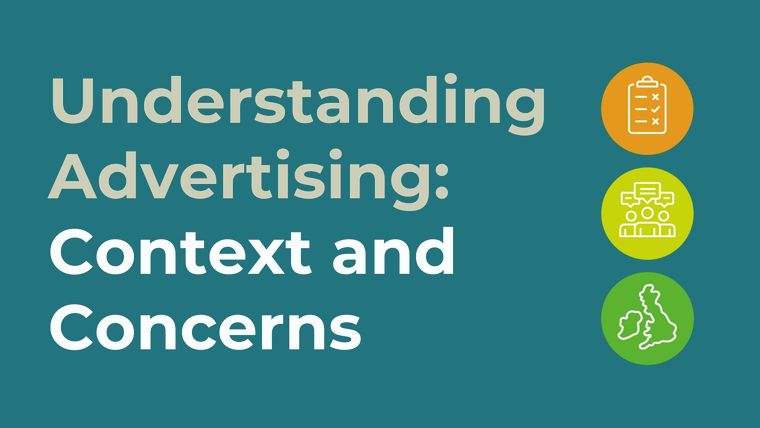
We're committed to protecting the public, particularly vulnerable groups, by ensuring ads are legal, decent, honest, and truthful. Our 2024-2028 strategy, AI-assisted collective ad regulation, sets out how we will use research tools to identify and tackle the most pressing ad-related issues.
To support this strategic goal, we commissioned independent research agency YouGov to conduct a UK-wide online survey of over 6,500 respondents (aged 16+)1. This research helps us better understand public concerns about advertising and informs our regulatory priorities.
This report is the first in a series of reports based on the survey findings. It focuses on thematic ad-related concerns, examining key issues that matter to the public. Some of these concerns fall within the ASA’s regulatory remit, while others—such as political advertising—sit outside it.
As the UK’s advertising regulator, it’s important for us to explore those concerns further to inform our priorities and identify the issues that are the most important for us to tackle.
Read the research and our analysis in full here.
Advertising concerns in context
Before exploring the public’s concerns around advertising in detail, it was important to contextualise those by understanding their priority concerns, including issues relating to the wider media landscape2.
We found that across the wide variety of national issues we asked about, such as the availability of healthcare services and the cost of the weekly shop/other household bills, the media landscape ranks lowest.
When focussing on the media landscape, we see that there are a range of issues people say they are more concerned about than advertising. For example, misinformation/’fake news’ and a perceived lack of impartial news sources are of much greater concern. However, while concerns around ads that may be misleading, harmful or seriously offensive are relatively low, that’s not to say the adverse impacts of these ads, which the public experiences in difference ways, should be dismissed - and it’s important for us to understand those concerns.
Advertising concerns: Focus on thematic issues
The survey went on to explore concerns around a range of specific ad-related topics. Respondents were presented with a list of issues and asked which ones they were concerned about. This report focuses on the list of thematic ad-related topics we asked about, some of which fall within the ASA’s remit and others that do not (e.g., political advertising)3.

The survey shows almost two-thirds (64%) of the UK population is concerned about scams or fraudulent advertising. 31% say, that of the issues asked about in this list, it is the one they are most concerned about. Scams are the top concern across each of the nations and the ranking of other concerns is broadly consistent.
To address this, we recently published an update on the impact of the Scam Ad Alert system we operate in partnership with major online and social media platforms to help tackle scams ads in paid-for space online.
This demonstrates how we’ve already explored some of the key concerns highlighted in this first report and in the coming weeks we will be publishing further results from our survey that are helping to prioritise our work to protect vulnerable people and ensure ads across all media are legal, decent, honest and truthful.
1 Research was conducted by YouGov Plc on behalf of the ASA. The total sample size was 6,808 respondents aged 16+. Fieldwork was undertaken between 8th - 29th July 2024. The survey was carried out online. The figures have been weighted and are representative of all UK adults (aged 16+). Analysis of results was conducted by the ASA.
2 Conclusions presented in this analysis are based on responses to the list of topics asked about in each question. So, for example, when we say respondents are ‘most concerned about...’, this is limited to the list of issues asked about in the same question.
3 Conclusions presented in this analysis are based on responses to the list of topics asked about in each question. So, for example, when we say respondents are ‘most concerned about...’, this is limited to the list of issues asked about in the same question.
-
Keep up to date
Sign up to our rulings, newsletters and emargoed access for Press. Subscribe now.


